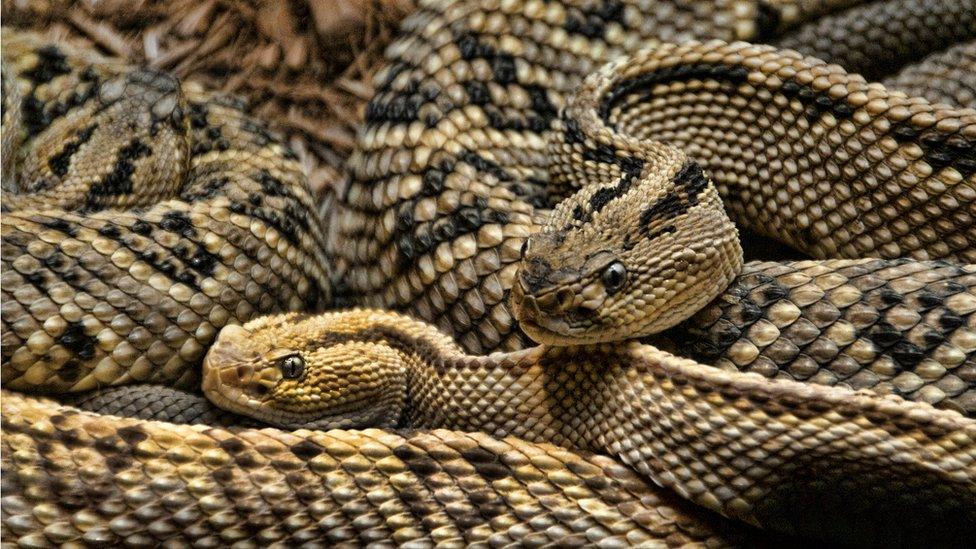Rattlesnakes enjoy a group hug according to US study
- Published
- comments

Group hug, anyone?
When you think about rattlesnakes, the words warm and cuddly may not come to mind right away, but scientists have discovered the reptiles enjoy a hug! But why?
A new study by researchers from Loma Linda University in California has shown that rattlesnakes, much like people, feel calmer when they are cuddling another rattlesnake.
The research showed that the snakes seemed to become calmer when they wiggled into a sort-of group hug with other rattlers.
This discovery challenges the previous idea that rattlesnakes were solitary hunters who prefer to be alone.
Chelsea and her colleague tested the heart-rate and temperature of the snakes for the study.
The study was led by Chelsea Martin, and professor William Hayes, inspired by his volunteer work rescuing snakes in the mountains of South California.
Professor Hayes said that when he put a snake on its own in a bucket, he noticed that it rattled its tail furiously, but if he put two snakes in a bucket together, they would not rattle as much.
Ethology - is the study of animal behaviour.
Chelsea Martin wanted to explore the calming effect between two animals of the same kind when next to each other - called social buffering.
The scientists tested this theory in 25 wild rattlesnakes by placing them in a bucket and monitoring their temperature and heart-rate when they were alone, with a piece of rope, or with another rattlesnake.
The results showed that the snakes who were together had much lower heart rates compared to being alone or with a piece of rope.
The snakes were placed into a bucket which was knocked lightly by sticks to see how the snakes would respond under three different situations
"It tells us that when they are with another snake it reduces their stress response," said Chelsea Martin.
"It has never been reported in reptiles before. It's something that humans do." she said.
"It lets us know as humans that, hey, we're not that different from these snakes,"
"They are doing something we do." she said.
It is hoped that this new research can be used to by zoos and rescue volunteers help snakes feel less stressed.
- Published8 April 2023
- Published13 January 2021
